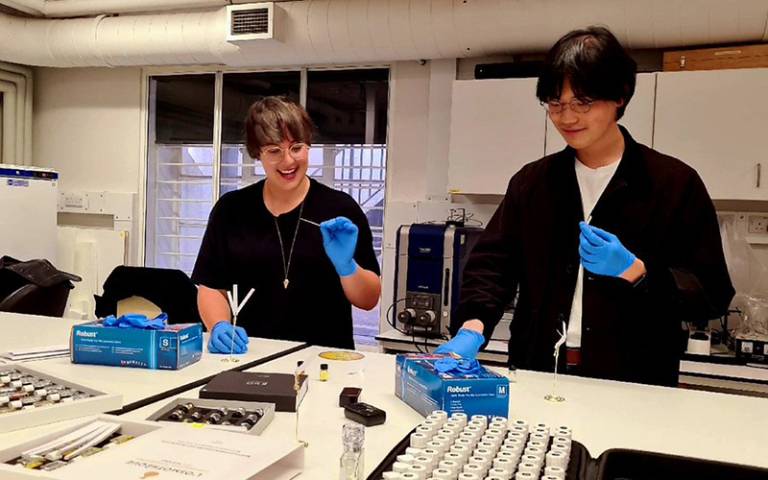Smell training: communicating olfactory perceptions
11 May 2023–25 May 2023, 3:00 pm–5:00 pm

Join our four-week in-person training course to develop key skills in communicating olfactory perceptions. This is relevant to researchers who work with smells/use their nose as a source of knowledge. If you are conducting research involving other modes of sensory data, such as auditive or flavour, this course will help you develop skills to talk about sensory information.
Event Information
Open to
- All
Availability
- Yes
Organiser
-
Cecilia Bembibre
Smells offer information about the world around us. However, while the hundreds of scents we perceive every day affect our behaviour, thoughts and feelings, few professionals systematically use their noses as a source of knowledge. This training is designed to enable researchers to recognise, describe and categorise smells in a personal way, while supporting the development of a common language. This can be particularly helpful to those using gas chromatography-olfactometry analysis or designing olfactory evaluation panels.
Places on this training course are limited - if you wish to attend please register your interest by emailing Cecilia Bembibre.
More Information
Each session will demonstrate several practical skills and include time for Q&A. Participants will build their odour recognition and training skills. All materials will be provided. The sessions will take place at UCL in London (Heritage Science Lab in Bloomsbury), and will include some familiarisation with the GC-O technique. Previous knowledge of olfactory analysis not essential.
Format: 4 sessions, as follows:
Sessions 1-4: Perceiving and talking about the smell of natural materials
Participants will develop skills to recognise and describe smells associated with natural materials. We will focus on the diversity of citrus and spicy notes to compare character and appreciate the subtlety of difference and their effects on perception. This exercises will help expand participants vocabulary to talk about olfactory sensations and materials.
Session 1, May 11, 3pm GMT: Discussion on common descriptors for citrus notes I. It is essential that the citrus referents have been explored offline prior to this session.
Session 2, May 17, 3pm GMT: Discussion on common descriptors for citrus notes II. It is essential that the citrus referents have been explored offline prior to this session.
Session 3, May 18, 3pm GMT: Discussion on common descriptors for spicy notes I. It is essential that the spicy referents have been explored offline prior to this session.
Session 4, May 25, 3pm GMT: Discussion on common descriptors for spicy notes II. It is essential that the spicy referents have been explored offline prior to this session.
Suggested offline exploration protocol: participants conduct the revision on their own. Using the reference kit and blotters or sniffing pens, spent 3-4 minutes in silence exploring one referent at a time and noting down personal associations and memories the smell evokes. The group discussion will aim to build a bridge between personal perception and published vocabularies, to arrive at a common set of odour descriptors.
 Close
Close

